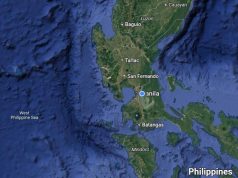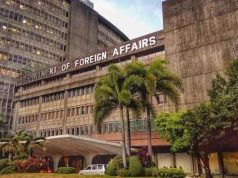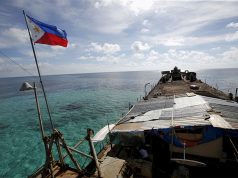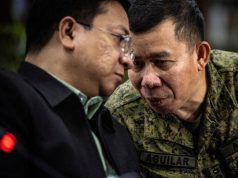MANILA, Philippines – China vowed to be a “good neighbor and good partner” to members of the Association of Southeast Asian Nations (ASEAN) as the regional bloc agreed to begin negotiations on the Code of Conduct on the disputed South China Sea.
“China always sees ASEAN as a parity in all neighborhood diplomacy,” Prime Minister Li Keqiang said in his opening statement at the ASEAN-China summit, one of the discussions on the side of the ongoing 31st ASEAN Summit in Manila.
“We are committed to working with ASEAN to be a good neighbor, good friend and good partners. …We are always working together rain or shine,” he added.
The Chinese Premier said his country was “committed to a future that tends to build common ideals, common prosperity, and common responsibility.”
Reports quoting a draft statement of the summit said that member states have agreed to “officially commence negotiation with China on the Code of Conduct.”
The framework seeks to advance a 2002 Declaration of Conduct (DOC) of Parties in the South China Sea, which has mostly been ignored by claimant states, particularly China, which built seven manmade islands in disputed waters, three of which are equipped with runways, surface-to-air missiles and radars, Reuters said in an earlier report.
In an earlier interview, President Duterte’s spokesperson Harry Roque also said that discussions on the framework of the Code of Conduct was among the highlights of the summit.
“Natapos na raw iyong framework ng Code of Conduct at inaasahan nila na sa lalong mabilis na panahon ay matatapos itong [buong] Code of Conduct na ito (I heard that the framework of the Code of Conduct has already been finished, and they expect that the Code of Conduct will be completed as soon as possible),” Roque said.
Code’s a critical mechanism – think tank
A legal Code of Conduct is a critical mechanism in maintaining peace and security in the region in light of the rising incursions of China, according to the Stratbase Albert del Rosario Institute (ADRi).
Dindo Manhit, the president of the private think tank, said a code of conduct can give governments the ease they need to work past their differences, especially in the context of ASEAN’s relationship with the rising global power.
“One of the most important actions is for the countries to exercise self-restraint and focus on peaceful means in resolving the disputes,” a press release from ASRi quoted Manhit as saying.
He proposed a brand of multilateralism that stands on international law to resolve misunderstandings and ultimately guarantee regional stability, something that the Philippines could have spearheaded following the international tribunal’s favorable decision regarding the West Philippine Sea in 2016.
Otherwise, ADRi noted in its press release, the usual feeble approach from ASEAN effectively ignores what many see as increasingly aggressive behavior by Beijing in the disputed waters, including the unabated militarization of islands.
“China has ignored the Hague decision,” said Masashi Nishihara, president of the Research Institute for Peace and Security Tokyo. “Four airbases have been built on the islands, and it’s clear that its strategy is to prevent unity in the ASEAN.”
He recommended that the regional bloc continue its multilateral approach by forming a South China Sea Group and maintain its closeness with the US and other regional partners such as Japan and Australia.
In his opening statement at the ASEAN-China summit, Duterte said the gathering “provides yet another opportunity for China and ASEAN to assess current status and chart future directions of our strategic partnership.”
“We hope for a fruitful and productive meeting that shall demonstrate our common resolve . . . for greater ASEAN-China cooperation,” he said.









